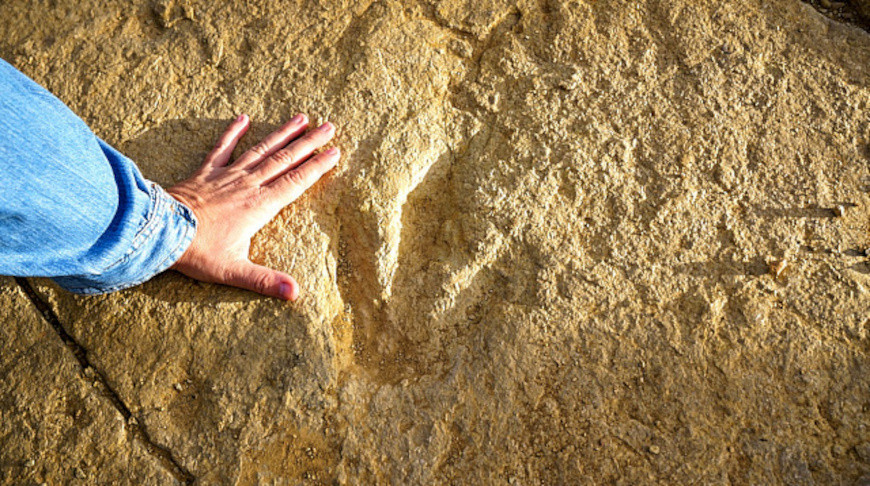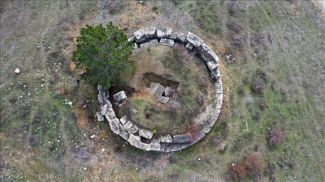
MOSCOW, 24 April (BelTA - TV BRICS) - A recently uncovered dinosaur
footprint in the northern Zarand county, Kerman province, has officially
become the area’s most prominent new tourist attraction, according to
local heritage and academic authorities. This is reported by Tehran
Times, a partner of TV BRICS.
Discovered on a sloped rock surface, the 180-million-year-old footprint is attributed to a herbivorous dinosaur from the Jurassic period. Though partially damaged, the find holds significant scientific and tourism value, offering fresh insights into the prehistoric past of southeastern Iran.
Mohammad Eslami, head of the Zarand Cultural Heritage, Tourism and Handicrafts Department, described the footprint as both a scientific treasure and a major opportunity for sustainable tourism. He announced that preservation work and site development will soon begin to protect this ancient landmark while promoting educational and scientific tourism in the region.
The discovery adds to earlier findings in 2002, when a joint Iranian-Brazilian team identified dinosaur remains, including a theropod tooth and bone fragments.
Discovered on a sloped rock surface, the 180-million-year-old footprint is attributed to a herbivorous dinosaur from the Jurassic period. Though partially damaged, the find holds significant scientific and tourism value, offering fresh insights into the prehistoric past of southeastern Iran.
Mohammad Eslami, head of the Zarand Cultural Heritage, Tourism and Handicrafts Department, described the footprint as both a scientific treasure and a major opportunity for sustainable tourism. He announced that preservation work and site development will soon begin to protect this ancient landmark while promoting educational and scientific tourism in the region.
The discovery adds to earlier findings in 2002, when a joint Iranian-Brazilian team identified dinosaur remains, including a theropod tooth and bone fragments.













